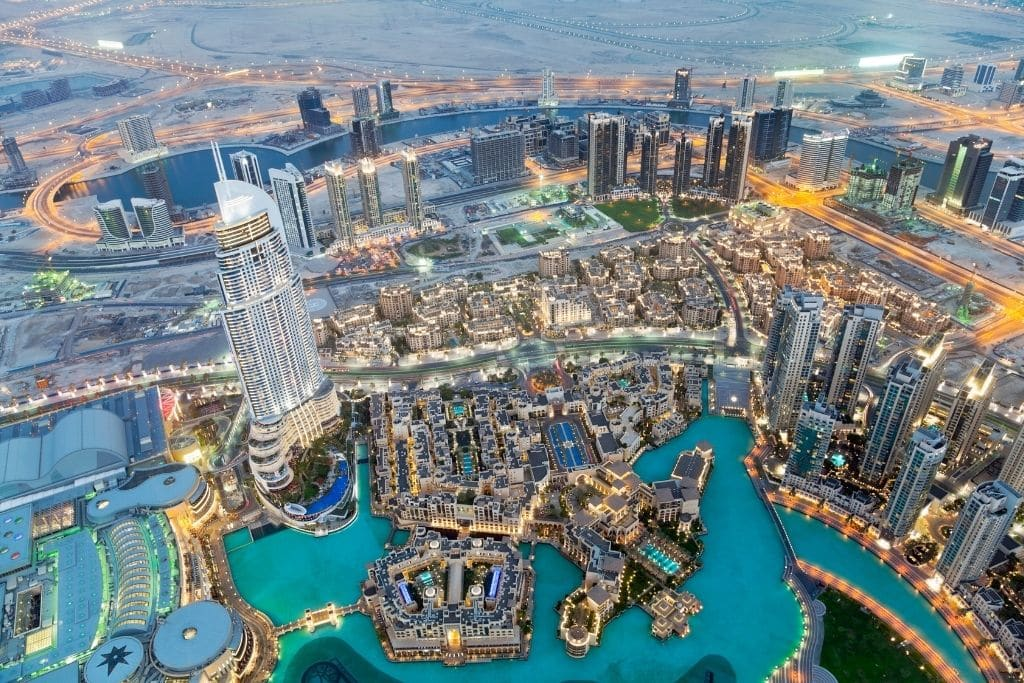
Dubai has always been a city that dreams big. From the world’s tallest building to man-made islands, Dubai never stops surprising the world. Now, the city is working on something even more futuristic — building the world’s most advanced smart city using Artificial Intelligence (AI), the Internet of Things (IoT), and Blockchain technology.
These three technologies are changing cities across the world. But Dubai wants to lead the way and create a city where life becomes smarter, easier, and more secure for everyone — residents, visitors, and businesses.

A smart city uses technology to improve the way people live, work, and travel. Smart cities aim to save time, reduce energy, and make daily life more efficient. Dubai’s smart city vision is about connecting everything — from traffic lights and electricity grids to public transport, hospitals, and even government services — using the power of AI, IoT, and Blockchain.

Artificial Intelligence (AI) is playing a huge role in Dubai’s future plans. AI can process massive amounts of data faster than humans ever could. This helps the city make better decisions — automatically and in real time.
For example:
The Internet of Things (IoT) is another technology that is shaping Dubai’s smart city projects. IoT devices are small sensors or gadgets connected to the internet. They collect and share data all the time.
Some examples in Dubai include:
Dubai is also the first city in the world aiming to run entirely on Blockchain by 2030. But what is Blockchain?
Blockchain is a digital system where information is stored in a secure, transparent way. Once data is entered into a blockchain, it cannot be changed or hacked easily.
Here’s how Dubai plans to use it:
Dubai isn’t just talking about building a smart city — it is already making it happen.
For citizens, this smart city transformation will make life smoother, faster, and safer. They will get services instantly without standing in lines or filling forms. Transport will be faster and cleaner. Energy bills may drop because homes and offices will run more efficiently.
For businesses, Dubai’s smart city will offer new opportunities. Companies in technology, healthcare, transport, real estate, and even finance can use AI, IoT, and Blockchain to offer new services or improve existing ones.
For example, logistics firms can track shipments in real time using IoT sensors. Healthcare providers can create personalized treatment plans with AI data. Property deals can be completed faster with Blockchain records.
While the dream is big, there are challenges too. Privacy and cybersecurity are top concerns. With so much personal data being collected, Dubai must ensure this data is safe from hackers. Also, not all citizens are familiar with AI, IoT, or Blockchain, so education and training will be important.
Costs are also high. Building smart city infrastructure requires billions of dollars. Dubai’s leadership, however, believes the investment is worth it because it will make the city more attractive to investors, tourists, and talent from all over the world.
Many countries are watching Dubai’s smart city experiments closely. If successful, Dubai could become the world’s leading example of how technology can make cities more livable, efficient, and secure.
As AI, IoT, and Blockchain continue to develop, Dubai’s next-gen smart city projects are likely to set new global standards — not just for buildings and gadgets, but for how human life can improve through technology.
Dubai’s smart city vision is not science fiction — it is real and happening now. The world is excited to see how this unique blend of AI, IoT, and Blockchain will turn Dubai into a futuristic city where life is easier, smarter, and better for everyone.
Read More:- Shobha Realty Launches Its Most Luxurious Project Yet—Full Details Inside 2025
